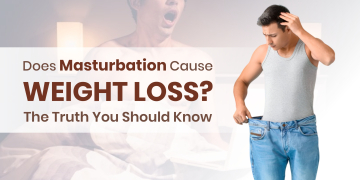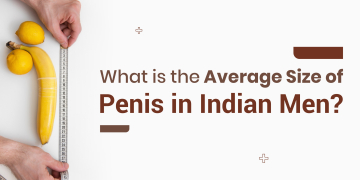What is Low Libido? Their Causes and Solutions, Best Sexologist Can Help Diagnose and Treat Low Libido Effectively
Libido often referred to as sex drive is the desire or interest in engaging in sexual activities It is a natural part of human life but it can vary from person to person and can be influenced by several factors However when libido decreases or fades significantly it can cause distress and confusion This condition is commonly known as low libido If you're experiencing this seeking help from the best sexologist can provide clarity support and possible solutions
What is Low Libido?
Low libido is the reduced or diminished interest in sexual activity While it is normal for libido to fluctuate due to various reasons such as age stress or lifestyle a significant and persistent drop can affect relationships and overall well-being for many people it can lead to frustration, insecurity and a sense of emotional disconnect from their partners
What are the Causes of Low Libido?
Low libido can arise from a range of factors, both physical and psychological Some of the most common causes include
1. Stress and Anxiety
Mental health plays a significant role in sexual desire High levels of stress or anxiety can cause a person to lose interest in sex The constant pressure of work personal problems or financial concerns can distract the mind and diminish libido Furthermore anxiety can cause fear of intimacy or performance making it hard to engage in sexual activity
2. Hormonal Imbalances
Hormones regulate many aspects of our health including sexual desire For both men and women hormonal changes can impact libido In women low levels of estrogen, particularly during menopause can lead to a drop in sex drive For men low testosterone levels are a common cause of reduced libido Conditions like thyroid disorders or diabetes can also contribute to hormonal imbalances
3. Relationship Issues
Emotional closeness and communication are crucial for a healthy sexual relationship If a couple is facing unresolved conflicts lack of communication or emotional distance can lead to a decrease in libido Poor relationship dynamics can create tension and make sex feel less enjoyable or even unwanted
4. Physical Health Problems
Certain medical conditions can negatively affect libido Chronic illnesses like heart disease diabetes and obesity can impair blood circulation leading to reduced sexual desire Medications such as antidepressants blood pressure drugs, or birth control may also have side effects that influence sexual interest
5. Lifestyle Choices
Diet, exercise, and sleep patterns can impact libido A sedentary lifestyle poor nutrition, or lack of sleep can contribute to low energy levels and decreased sexual desire Additionally alcohol and drug abuse are known to significantly lower libido over time
6. Age-Related Changes
As people age their sexual desire naturally changes For women menopause marks a significant stage when estrogen levels decline which can lead to lower libido and other sexual health concerns Men too experience a natural drop in testosterone as they age which can lead to a decrease in sexual interest
.jpg)
How the Best Sexologist Can Help
A sexologist can help you understand the underlying causes of low libido and recommend the best course of action Here are a few ways they can help
1. Thorough Evaluation
A good sexologist will take the time to understand your situation by discussing your medical history lifestyle, emotional well-being, and relationship status This comprehensive evaluation will help them identify any potential causes of low libido
2. Addressing Physical Health
If your low libido is linked to physical health issues such as hormonal imbalances, medications, or chronic conditions, a sexologist can work with your primary healthcare provider to develop an appropriate treatment plan
3. Psychological Counselling
Techniques such as cognitive behavioral therapy (CBT) or mindfulness can be used to reduce anxiety and improve self-esteem and intimacy
4. Couples Therapy
If relationship issues are contributing to low libido couples therapy with a sexologist can help improve communication resolve conflicts and reignite intimacy Learning to reconnect emotionally can often lead to a renewed desire for physical intimacy
5. Lifestyle Recommendations
A sexologist may suggest lifestyle changes, such as regular exercise improved sleep habits, or dietary adjustments to enhance overall health and boost libido
6. Education and Empowerment
One of the primary roles of a sexologist is to educate their clients about sexual health They can provide information about sexual function desires and the importance of emotional connection in sexual relationships
Conclusion
low libido is a common issue that can be caused by a variety of factors including stress, hormonal imbalances relationship problems, and lifestyle choices It’s important to recognize that experiencing a decrease in sexual desire is not something to be ashamed of and seeking professional help from the best sexologist can provide valuable insights and solutions A sexologist can help identify the underlying causes of low libido and create a personalized treatment plan that may include therapy lifestyle changes or medical interventions By addressing the issue early and with the right support, you can restore your sexual health improve your relationships, and regain a sense of well-being and confidence. Don’t hesitate to seek help – a fulfilling and healthy sex life is within reach

















.jpg)








.jpg)
.jpg)